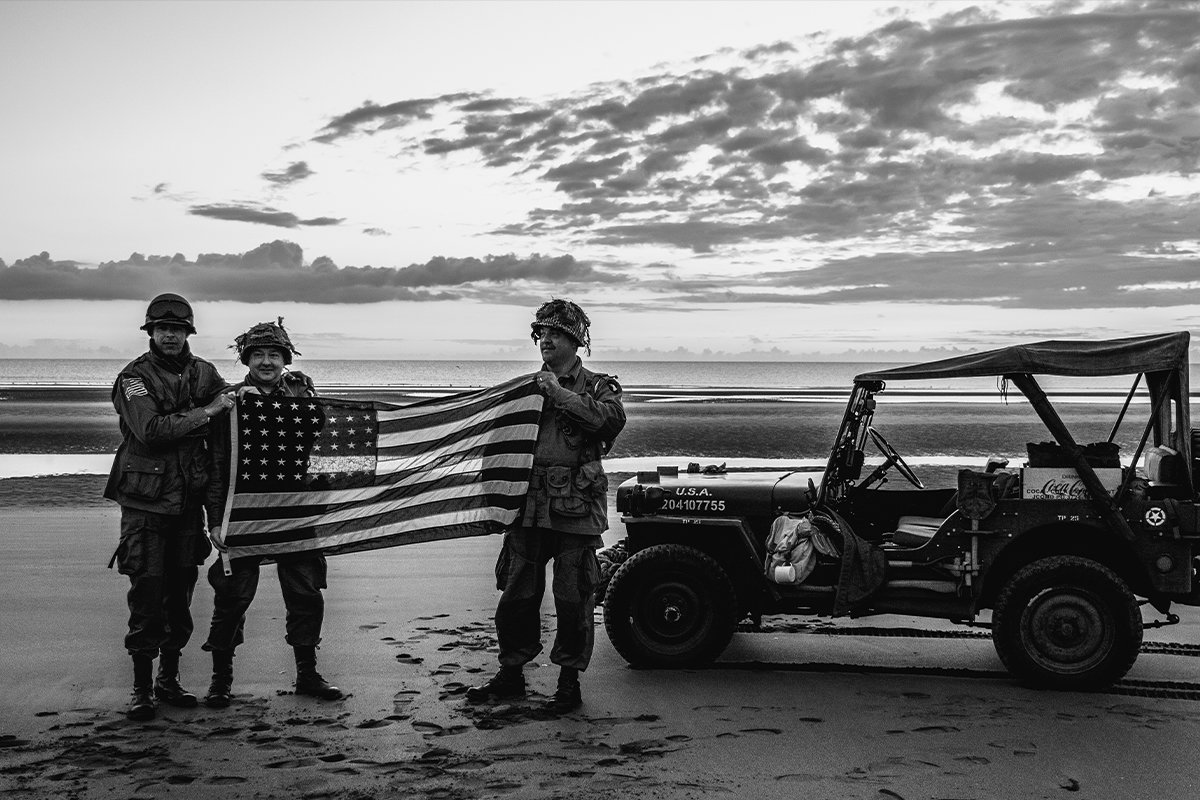
The sun wasn’t up yet, but the sky was already painted in brilliant pinks and purples. The thin layer of water resting on the beach reflected the colors, creating a dazzling visual spectacle for the few who rose early enough to witness it. The beauty before my eyes was stunning — but so was the carnage in this very spot 75 years ago.
On Thursday, June 6, 2019, a small crew of filmmakers and I — all from Black Rifle Coffee Company — woke up before dawn to pay our respects on Omaha Beach and attempt to capture the moment for everyone who couldn’t be there with us. To capture a moment in history that may be fading from the public consciousness.
Champ, our director of photography, aimed the camera at me, and I tried my best to describe what happened where I stood. What it felt like to stand there 75 years later. It was difficult to find the words, and at one point I had to pause to let the lump in my throat pass. Shana, our head of production, stared at me as if she was willing me to say something. Anything. The emotions in our small group ran high, and we needed something to cut the silence. But are words alone capable of capturing the gravity of what happened here?
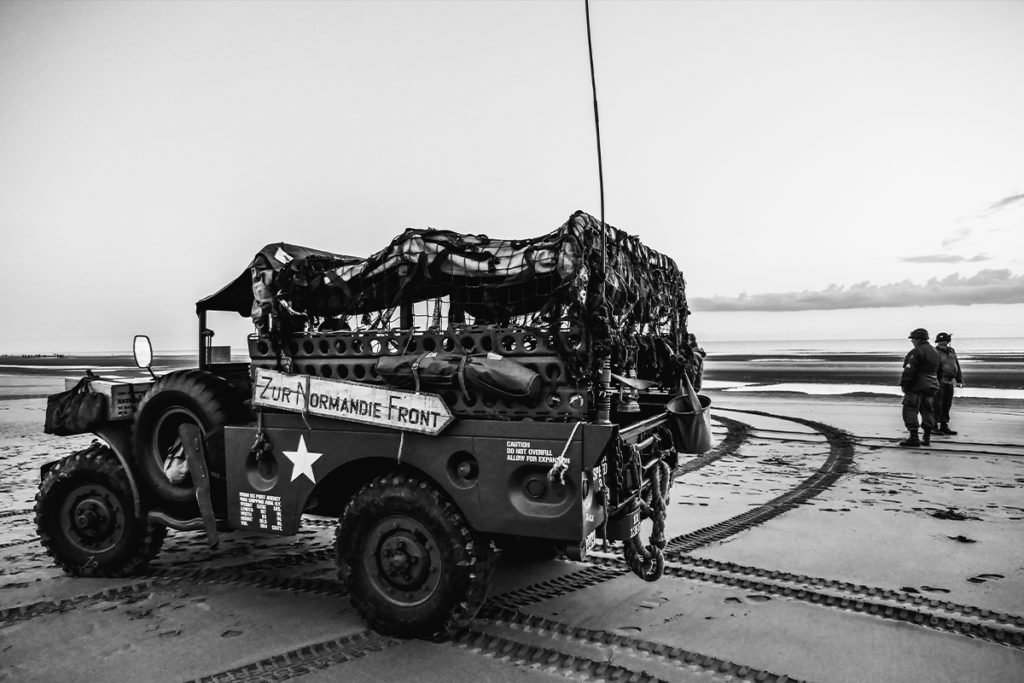
They need to be if I want my daughter — and her future children — to understand what happened here.
Vintage army jeeps cruised past us, one getting stuck. Its occupants, dressed as soldiers from D-Day, all jumped out to push it out of the thick, wet sand. It was a small illustration of the challenges faced by the first wave of assaulters, unfolding right in front of us.
I stood next to my younger brother, Josh. A paramedic by trade, this shoot was his first as a production assistant. Our grandfather likely stood not too far away. For us, we were literally walking in the footsteps of an ancestor. We weren’t the only two with that connection to this beach.
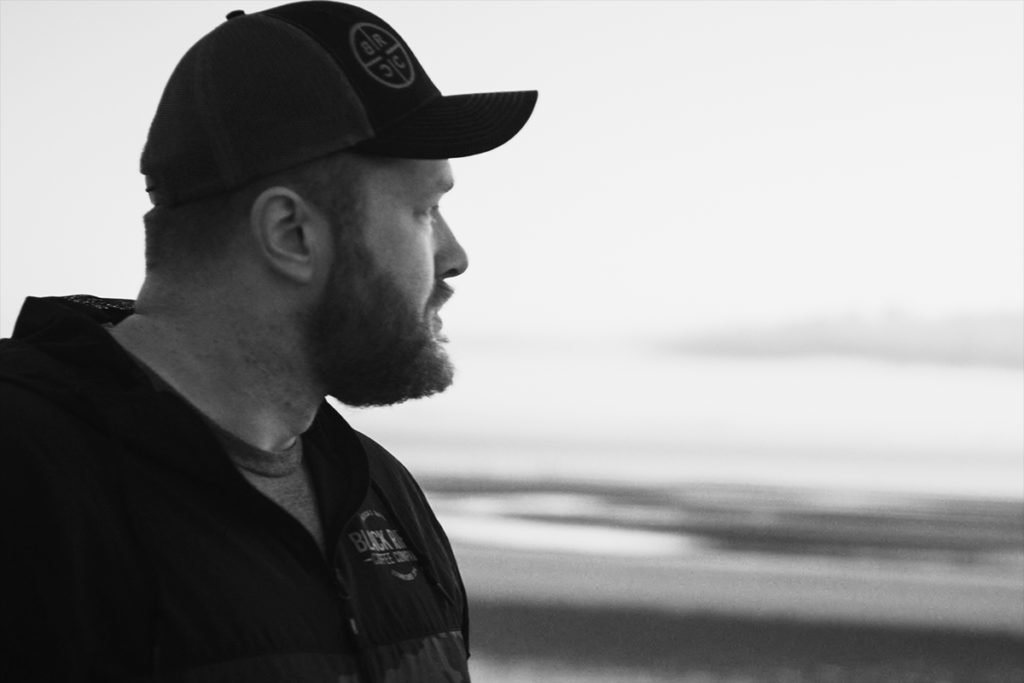
The sun crested the horizon. I walked closer to the water. Seventy-five years ago, the bodies of the forever young littered the beach where the water met the sand. Today, roses tossed into the ocean in solemn remembrance take their place.
The beach was beginning to fill up as more and more people came down to remember. One person planted a small American flag in the sand. Another gently placed a helmet once worn by an American soldier on the green seaweed. Others lowered themselves to a knee to take a photo of the symbolic gesture.
I turned and looked at the ocean. I tried to imagine the horizon filled with 7,000 ships of all shapes and sizes. They delivered the largest seaborne assault in human history. That glorious armada delivered men to their maker and freedom to the oppressed.
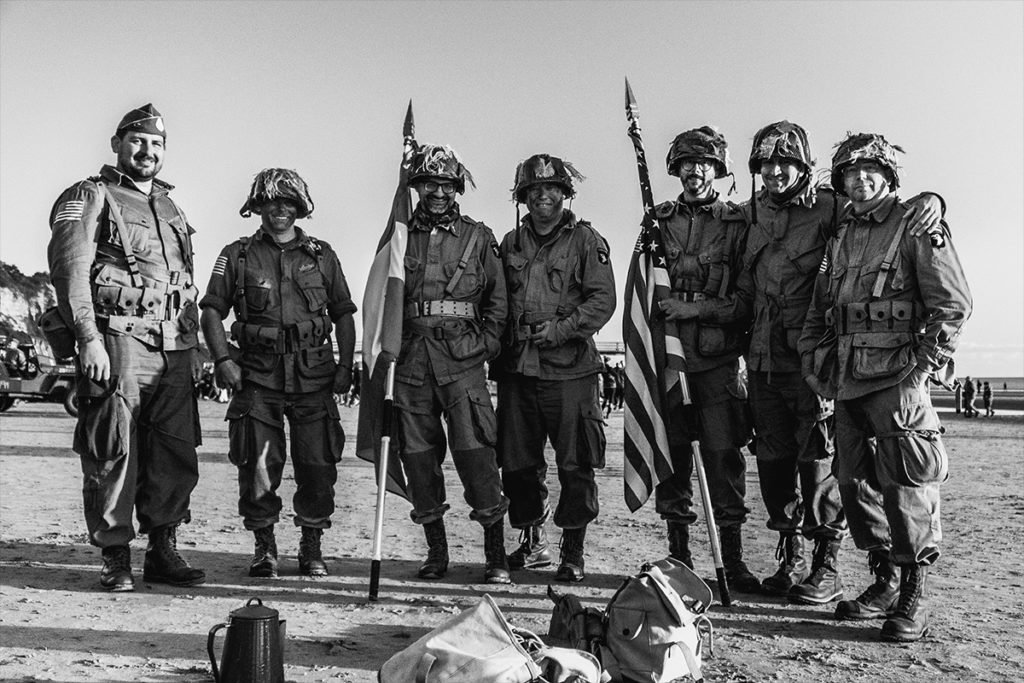
I turned my gaze from the water and looked inland. The bluffs looked formidable, the cliffs impossible. The open ground between where I stood and the first cover was intimidating. It’s bigger than what you see in the opening sequence of “Saving Private Ryan.” Standing there, I understood why what took me minutes to walk took hours for those who had to do it under fire.
I returned to the crew farther up the beach. Our editor, Gohlke, was visibly affected by what he saw. Hugh, our second cameraman, was cold from going into the ocean. The six of us stood on foreign soil together as Americans. Proud, humbled Americans. We can never repay the greatest generation for what they did for us, but we can remember them. We can tell their stories. We can live our lives in a way that honors their sacrifice.
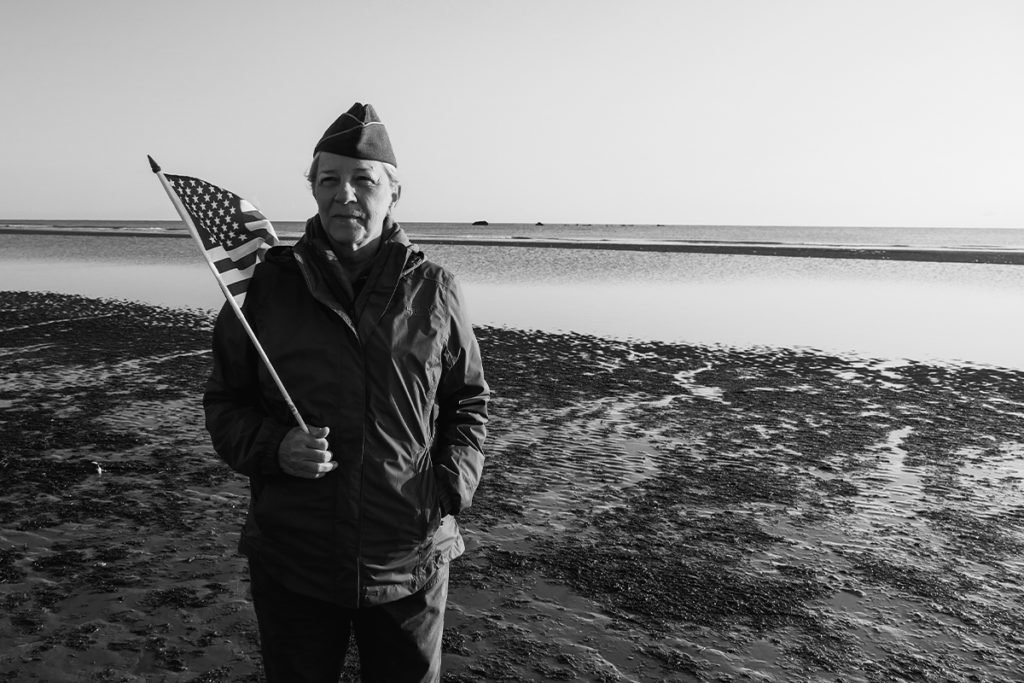
This is the third in a series of dispatches while Coffee or Die is in Normandy, France, for the 75th anniversary of D-Day.
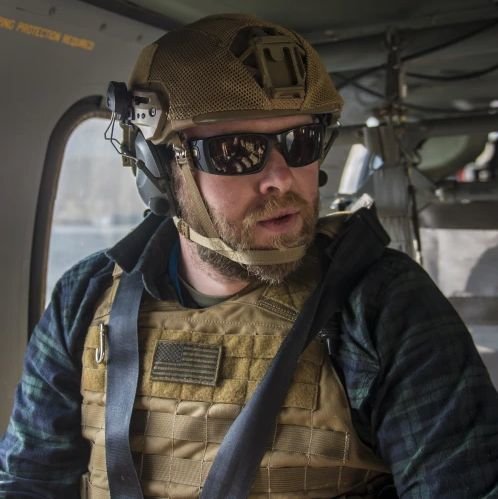
Marty Skovlund Jr. was the executive editor of Coffee or Die. As a journalist, Marty has covered the Standing Rock protest in North Dakota, embedded with American special operation forces in Afghanistan, and broken stories about the first females to make it through infantry training and Ranger selection. He has also published two books, appeared as a co-host on History Channel’s JFK Declassified, and produced multiple award-winning independent films.
BRCC and Bad Moon Print Press team up for an exclusive, limited-edition T-shirt design!
BRCC partners with Team Room Design for an exclusive T-shirt release!
Thirty Seconds Out has partnered with BRCC for an exclusive shirt design invoking the God of Winter.
Lucas O'Hara of Grizzly Forge has teamed up with BRCC for a badass, exclusive Shirt Club T-shirt design featuring his most popular knife and tiomahawk.
Coffee or Die sits down with one of the graphic designers behind Black Rifle Coffee's signature look and vibe.
Biden will award the Medal of Honor to a Vietnam War Army helicopter pilot who risked his life to save a reconnaissance team from almost certain death.
Ever wonder how much Jack Mandaville would f*ck sh*t up if he went back in time? The American Revolution didn't even see him coming.
A nearly 200-year-old West Point time capsule that at first appeared to yield little more than dust contains hidden treasure, the US Military Academy said.












